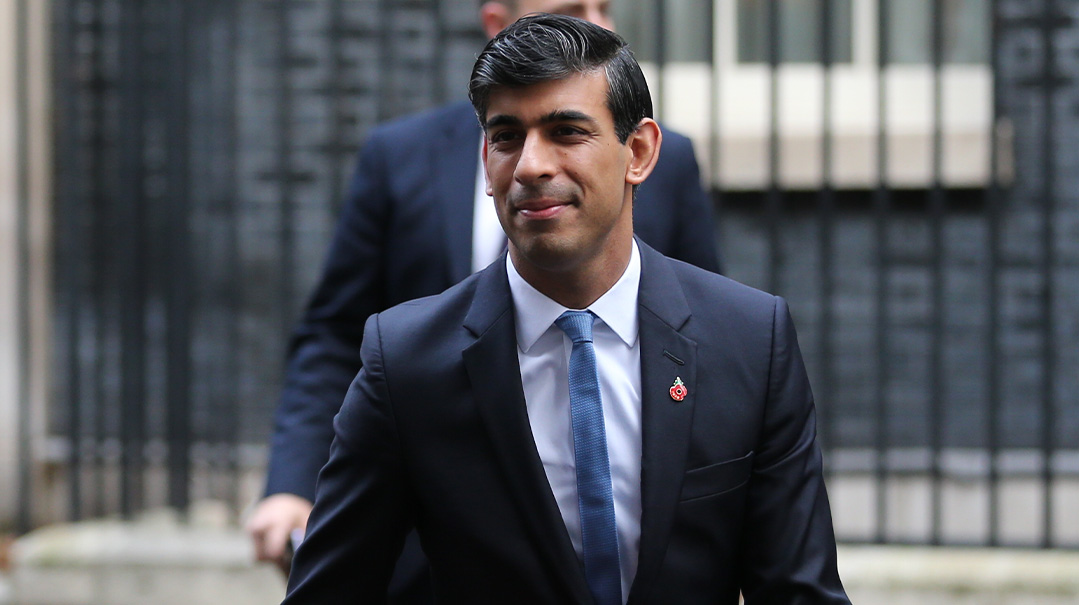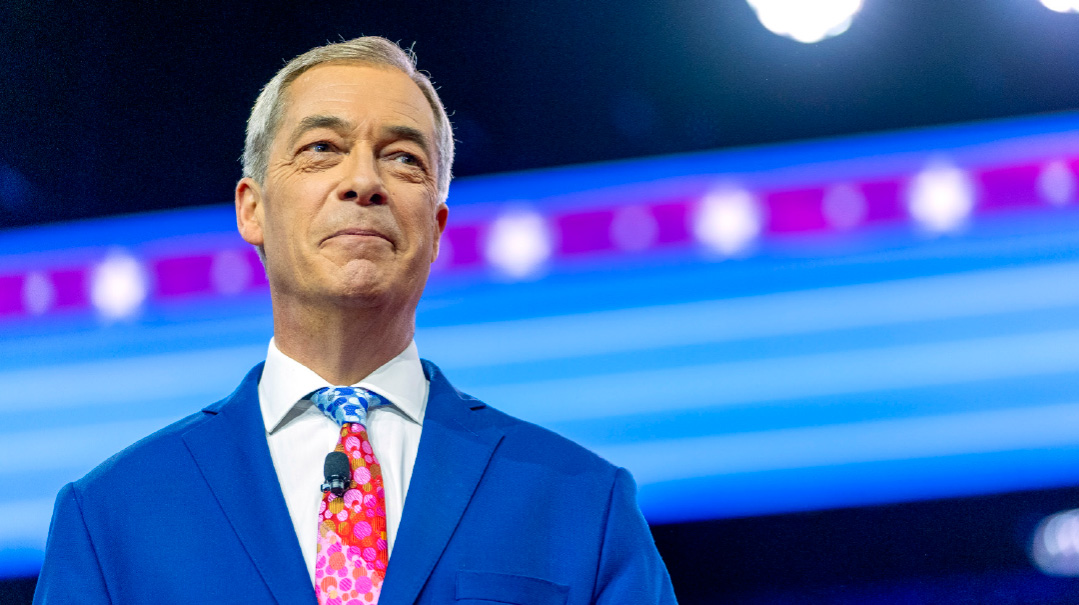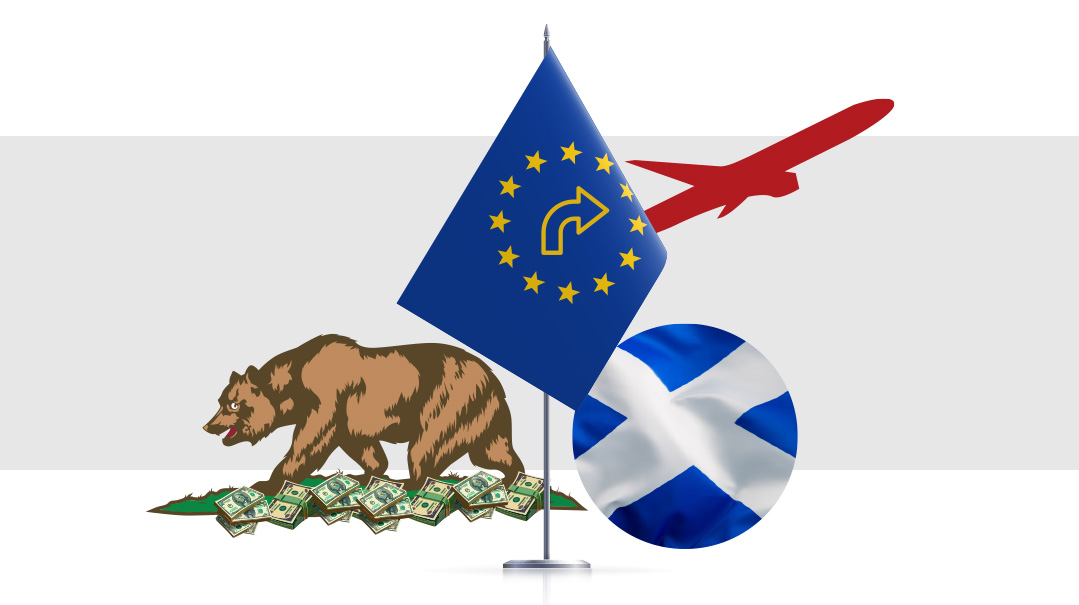Sunak Woos the Right
| May 30, 2023Sunak, whose polished pragmatism sometimes masks his distinctly conservative views, sees tackling immigration as crucial for his right-wing credentials

Sunak Woos the Right
Ever since he precipitated Boris Johnson’s downfall, British prime minister Rishi Sunak has been disparaged as a liberal centrist by the Conservative right. Sunak, whose polished pragmatism sometimes masks his distinctly conservative views, sees tackling immigration as crucial for his right-wing credentials. His choice of Brexiteer Suella Braverman, who told an interviewer last year that her dream was to deport rejected asylum seekers to Rwanda, signaled to his party’s right that he was on their side in this debate.
Sunak himself has made stopping the illegal boats bringing migrants over the Channel a top priority. He’s taking a multipronged approach, using a mix of legislation, cooperation with France, a deal with Albania (where many of the migrants originated), and a scheme to send those with rejected asylum claims to Rwanda (currently tied up in legal challenges).
Figures published last week showed 2022 migration at a record high of 606,000, agitating Tory MPs, especially those elected in 2019 by working-class voters who expected Brexit to mean lower migration.
So, when Braverman was caught up in a scandal over a speeding ticket, Sunak thought long and hard, as opposition parties and moderate Tory MPs clamored for her removal. Ultimately Sunak opted to keep her in post, avoiding a confrontation with the Conservative right. For now, the peace is holding.
Debt Ceiling
To nobody’s surprise, and everyone’s relief, an agreement on the federal debt ceiling has been reached ahead of the June 5 deadline, avoiding the economic destabilization that a US default would have caused.
Early Sunday, Republican House Speaker Kevin McCarthy tweeted that the president had finally come to an agreement, after months of time-wasting and refusing to negotiate. McCarthy’s vituperative tenor is characteristic of the bitter partisanship on Capitol Hill that dragged out the negotiations over weeks.
Both sides are trying to sell the deal as a victory to their party flanks. For Biden, it’s a far cry from the straight increase in the debt ceiling he was seeking, and it includes welfare cuts and Covid aid clawbacks. For Republicans, it’s nowhere near the $130 billion in spending cuts they sought and does nothing to reverse either the student loan forgiveness program or climate policies in the Inflation Reduction Act.
Apple Chips, Anyone?
The US scored a significant victory in the semiconductor chip war last week, when Apple announced a multibillion-dollar deal with chipmaker Broadcom to develop components for 5G devices that will be designed and manufactured in the US. The Biden administration has invested billions in boosting the US chip manufacturing industry to reduce reliance on Beijing and create more American jobs.
With the chip powering everything in the modern economy, Washington sees the program as critical to ensuring technological resilience, in the context of an increasingly assertive China. Apple, at the forefront of the tech scene, has also been diversifying away from China in recent years, sourcing components from other Asian countries like Vietnam and India. Last year, Apple announced it would buy chips from an Arizona factory owned by Taiwanese semiconductor giant TSMC.
While tanks, missiles, and soldiers mark out bloody battle lines in Ukraine, high-tech warfare is in full swing between the world’s economic superpowers.
DeSantis on the Trail
It’s official: Ron DeSantis is running for president. His unconventional launch, an interview with Elon Musk on Twitter’s broadcasting platform Spaces, turned rocky when servers crashed as hundreds of thousands tuned in — an apt metaphor for his GOP nomination hopes. According to an April poll by JL Partners, Trump leads by 33% in New Hampshire, 15% in Iowa, and 23% in Arizona.
But JL Partners co-founder James Johnson cautioned in a recent Washington Examiner article that these polls mask some surprising trends. When the race narrows to two horses, Trump versus DeSantis, the former president’s lead is cut significantly. Though Trump leads heavily in New Hampshire, DeSantis leads on primary voters’ three most prized attributes — competence, standing up against wokeness, and the ability to beat Joe Biden.
Add the fact that DeSantis has a substantial fundraising edge, raising $8.2 million in the first 24 hours after his launch, compared with the six weeks it took his rival to raise $9.5 million. At the end of April, even after a tough stretch for DeSantis, he had raked in $110 million, surpassing Trump’s haul, which stood at $73 million by early 2023.
Johnson also notes that half of first-preference Trump supporters list DeSantis as their second choice, and describe the Florida governor as “strong,” “competent,” and “smart.” Winning over Trump’s base is crucial to securing the Republican nomination, but these figures show there is a path to victory — albeit narrow —for DeSantis.
Let Them Travel by Train
If you’re in a hurry and need to fly domestically within France, you’re out of luck, because the French have now banned domestic flights (except connecting flights) if you can make the journey by train in under two and a half hours. Airline executives who don’t like it should be grateful that Emmanuel Macron didn’t go with the original proposal, which put the equivalent travel time for banned flights at four hours.
In a statement, transport minister Clément Beaune described the move as a global first, an essential step in the policy of reducing greenhouse gas emissions.
Air France was brought on board back in 2020, in exchange for a Covid bailout package. But Laurent Donceel, interim head of industry group Airlines for Europe (A4E) slammed the move as a “symbolic ban” and said the government should support “real and significant solutions to emissions” instead.
France is better placed than many European countries to transition from air to rail. Its state-owned SNCF rail operator provides high-speed intercity travel, and, in February, the government announced a further investment of €100 billion in railway infrastructure by 2040. France has the second-longest high-speed network in Europe, 2,734 km, dwarfing next-place Germany’s 1,157 km network.
Misery Index: 145
That was Israel’s ranking in a table of 157 nations in a Johns Hopkins study of the world’s most miserable countries, placing the Middle Eastern democracy as the 12th happiest nation. Switzerland takes the coveted bottom spot, which figures; it has a prosperous economy, plentiful chocolate, and a breath-taking mountain range. What’s not to like?
Unsurprisingly, Zimbabwe, Venezuela, and Syria take the top spots, with Turkey, Iran, Lebanon, and Yemen not far behind. Simon Constable, an academic who worked on the study, pointed out to the Jerusalem Post that Syria, Lebanon, and Iran had “awful economic policies.” Turns out running a country with no regard for its economy makes for an unhappy populace. Who knew?
(Originally featured in Mishpacha, Issue 963)
Oops! We could not locate your form.







